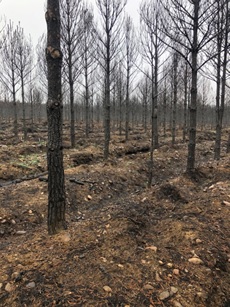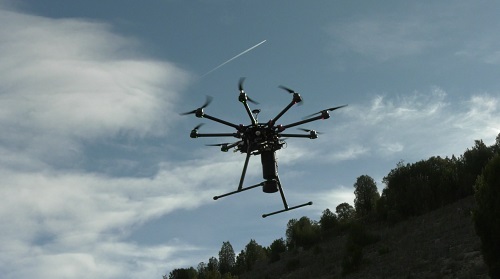Offset your carbon footprint
Collaborate with us in our Environmental Strategy!
Offset the Carbon Footprint of your trip
By offsetting the carbon footprint of your ticket, you collaborate in Alsa's full-cycle reforestation and carbon footprint offset projects in an amount equivalent to the emissions generated by your trip. And now, until December 2024, Alsa will double the contribution made by all our customers.
Alsa works to reduce the Carbon Footprint in Spain:
- Bus use generates 5.5 fewer greenhouse gases than private vehicles.
- Alsa made the commitment that all our urban buses in Spain will be Zero Emissions by 2035, as well as long-distance buses by 2040. To achieve this, it has a solid environmental strategy policy, which has already managed to reduce its emissions by 21.5 % since 2015.
- 27.8% of the urban and metropolitan fleet is ECO or ZERO, which represents a total of 596 vehicles. During 2022, these vehicles stopped emitting almost 20 thousand tons of CO2 into the atmosphere.
- We are pioneers in the introduction of new technologies, with the first hydrogen bus that has operated since January 2022 in Torrejón de Ardoz, in a commitment to the maturation of technologies and fuels that allow the decarbonization of the activity.
- We now offer our clients the possibility of collaborating in the development of an Alsa Forest, to compensate for the footprint they generate when traveling with us, contributing to the reforestation of areas of high ecological value that have been subject to deforestation.

Alsa, as a leading sustainable mobility company, and CO2 Revolution, a leading company in the reforestation of degraded areas, in their efforts to fight climate change and deforestation, have signed a collaboration agreement to carry out reforestation projects in Spain, with in order to restore environmental balance and, in turn, generate CO2 compensation.
Alsa Forest
Located in Congosto de Valdavia (Palencia), this initiative seeks to recover the great ecological value of the area after the great fire it suffered in 2020, which burned more than 100,000 trees.
With this, 56.64 hectares have been repopulated, planting more than 53,598 trees, with an estimate of 9,598 tons of CO2 absorbed in a complete cycle.
The repopulation was carried out with native species through manual means and with the technological support offered by CO2 Revolution, alternating traditional methods with avant-garde methods, such as the use of Big Data, "smart seeds" or planting with drones.
 Español
Español
 Català
Català
 Français
Français
 Galego
Galego
 Italiano
Italiano
 Português
Português
 Euskara
Euskara
 Deutsch
Deutsch

